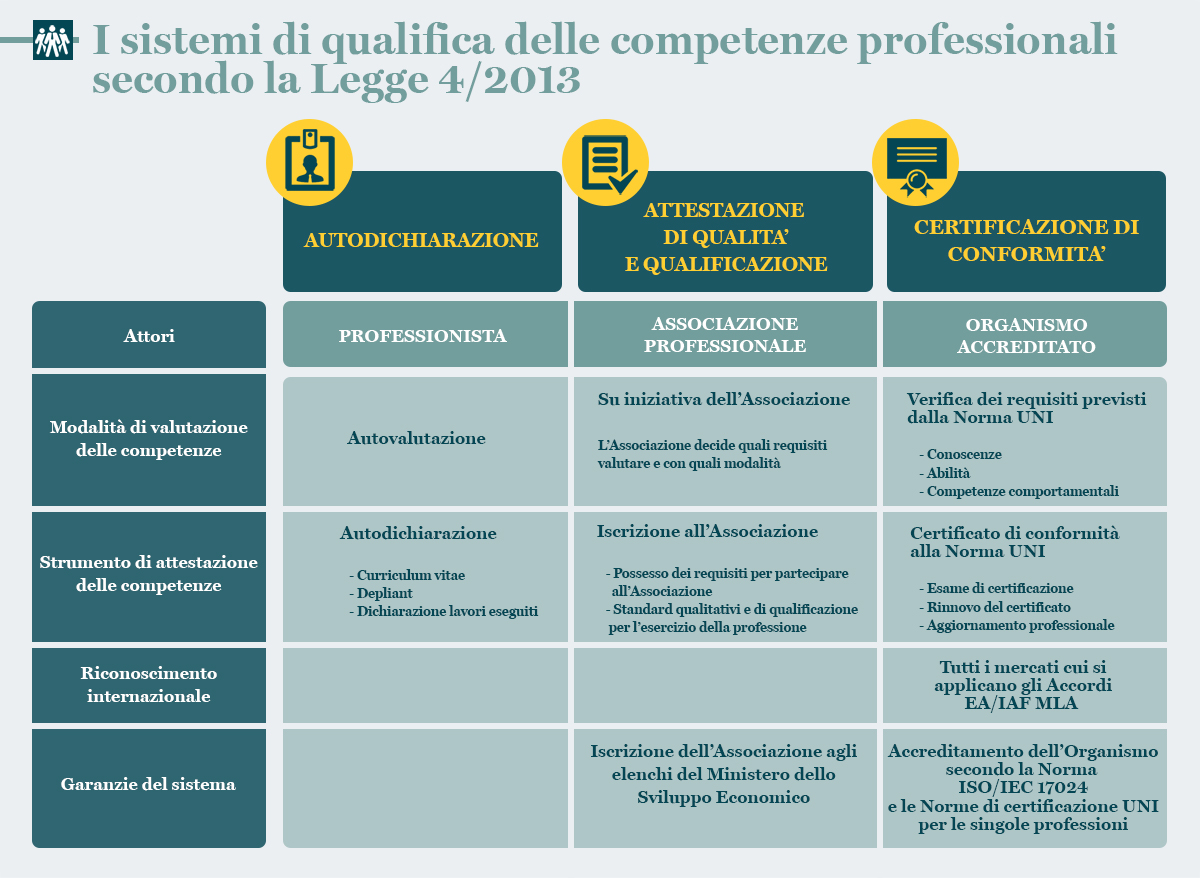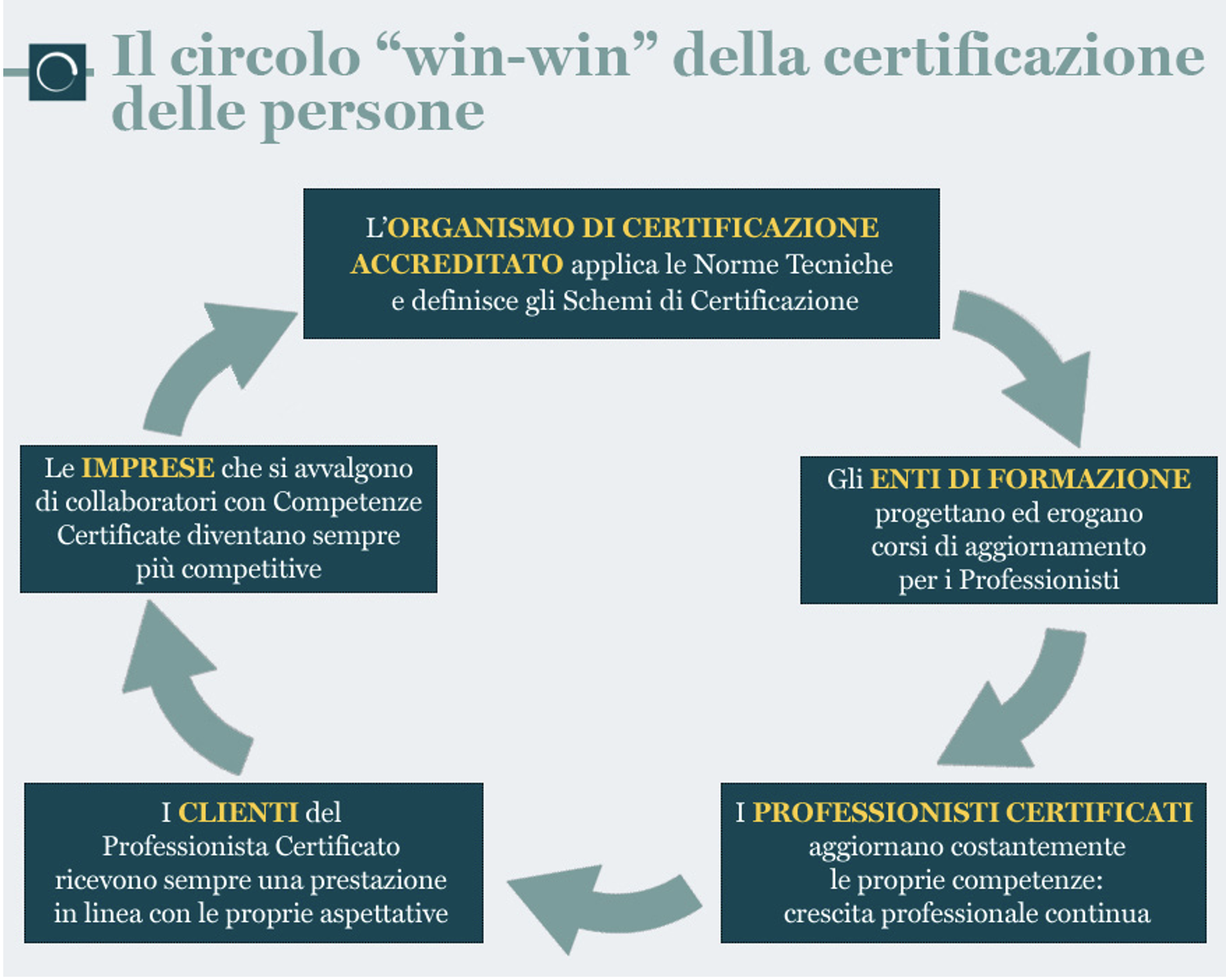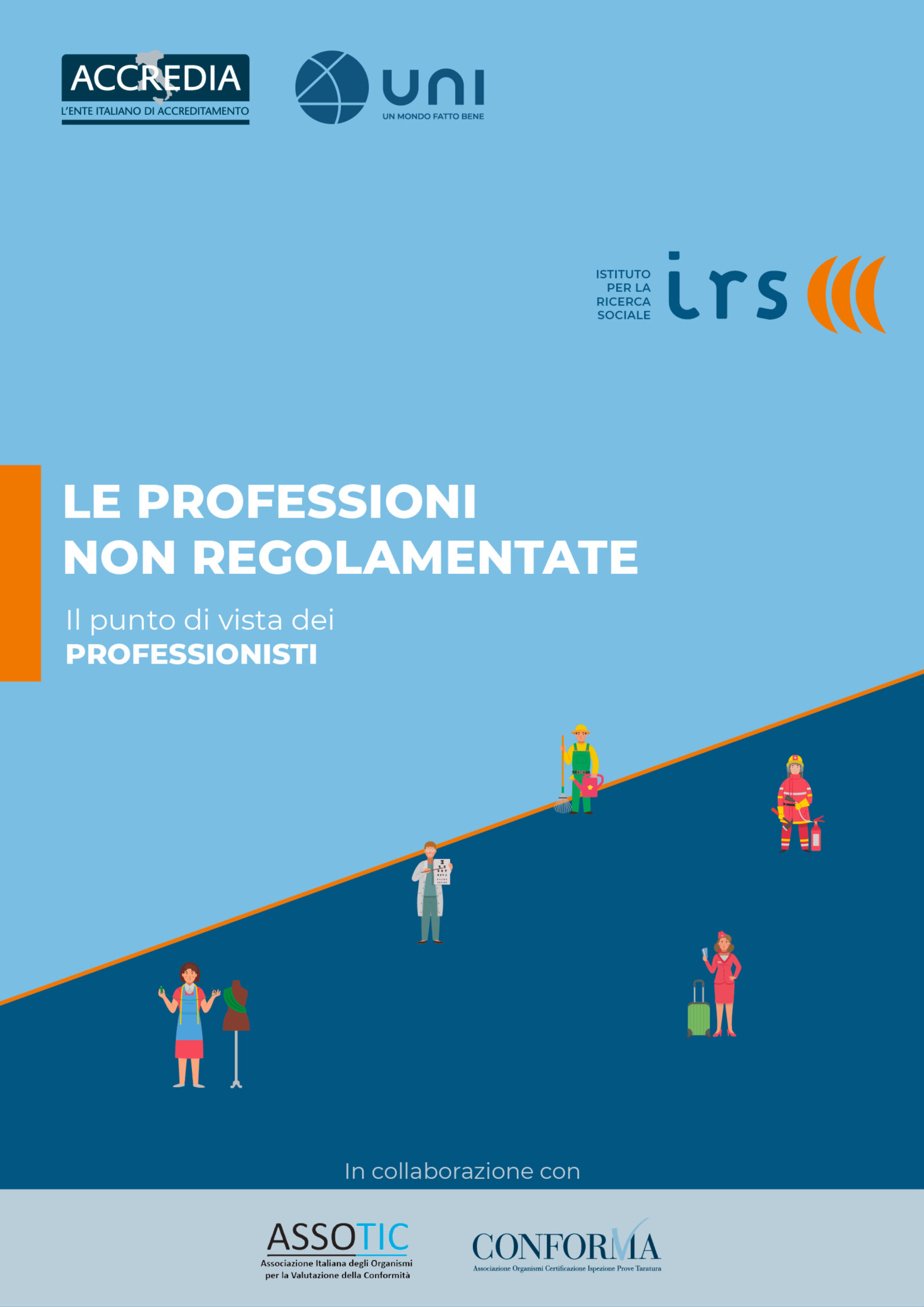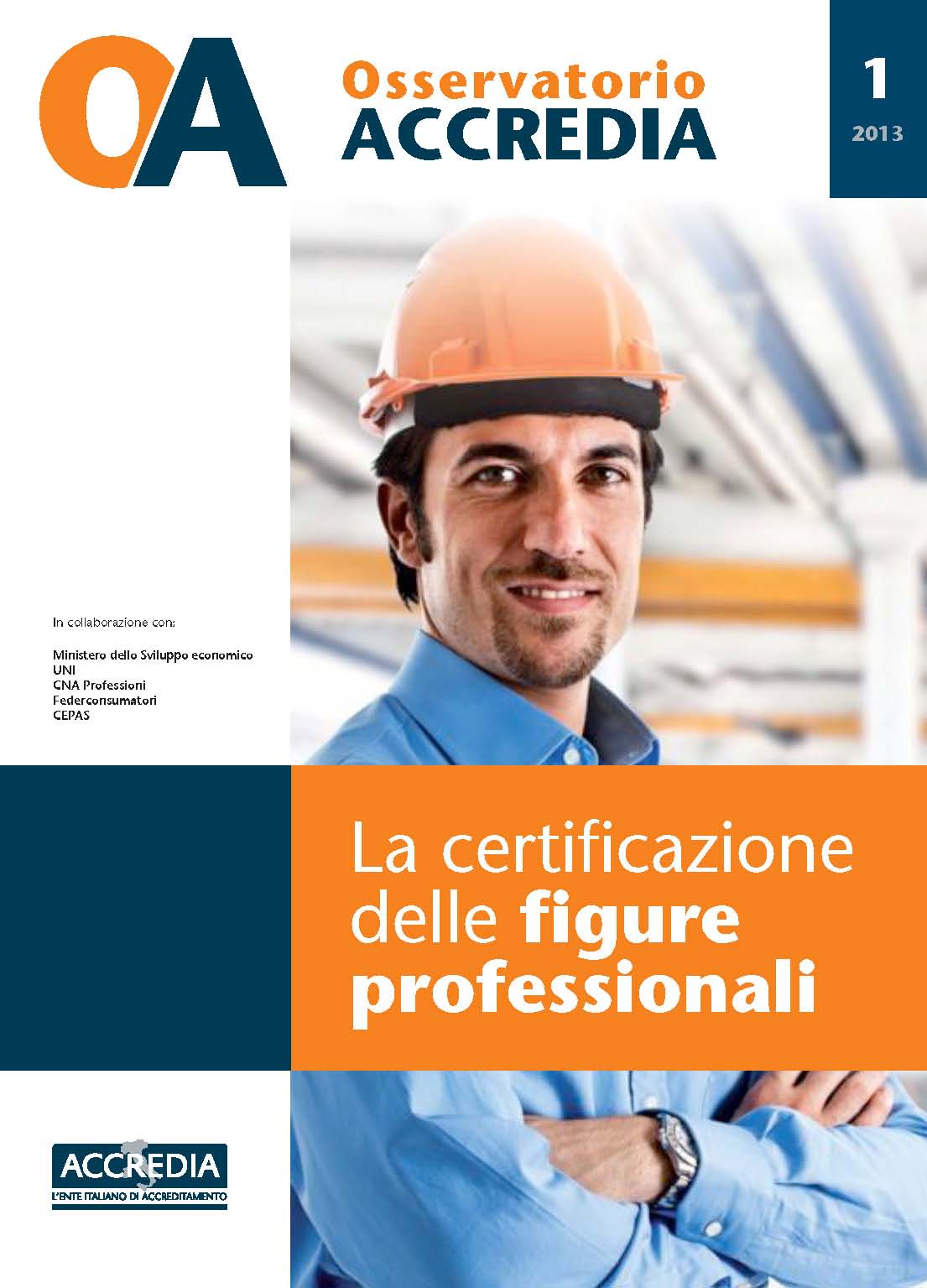Professional figures
A guarantee for professionals and customers
Certification allows professionals to demonstrate their competence in the market in an objective and verifiable manner. Customers and consumers can count on high standards of service.
In an increasingly competitive market, standing out for quality and expertise is essential. Certification allows professionals to demonstrate their skills on the market, improving their reputation and reliability in the eyes of customers, consumers, and employers. Investing in certification therefore means investing in your professional credibility and customer satisfaction.
A constantly evolving market
New non-regulated professions require objective, independent, and reliable verification of competence to protect both the professionals themselves and their customers.
Technological and job market innovations have led Italians to “invent” new professions to keep up with the times: there are more than 3 million professionals who are not organized into professional orders or colleges, operating in sectors of activity not covered by regulated registers of professions.
These are professions that have emerged from market needs following technological, social, economic, and cultural transformations: management consultants, trainers, logisticians, IT specialists, management system auditors, naturopaths, kinesiologists, massage therapists, graphic designers, designers, advertisers, condominium administrators and real estate appraisers, wedding planners, e-reputation managers and digital copywriters, security managers, and many others.
It is a dynamic and constantly evolving world, not subject to mandatory rules: there are no specific educational qualifications or state exams. The acquisition of competence and the satisfaction of clients (organizations or individuals) that determine the success or failure of the professional are entrusted to the initiative of the individual professional or industry associations.
Professionals who are trained and competent need to be protected from unqualified competition from improvised professionals by offering the market objective verification of their competence.
Customers, in order to rely on a professional, need a form of “preventive guarantee” of the adequacy of the services offered, which protects them from the risk of inconvenience or, in the worst case scenario, damage.
Guarantee by law
Law 4/2013 promotes the self-regulation of non-organized professions, qualifying professionals through self-declarations, quality attestations, or UNI certifications.
With Law 4/2013 “Provisions on unregulated professions”, Italy has designed a new regulatory framework that promotes the voluntary self-regulation of professionals, in accordance with the principle of free exercise of the profession, based on the autonomy, competence, and independence of intellectual and technical judgment of the professional.
Under the law, professionals who are not registered in professional associations have three systems available to them to qualify their professionalism:
- Self-declaration, whereby the professional certifies that they possess educational qualifications, work experience, training courses, competence, etc.;
- Certification of quality and professional qualification of their services, issued by the relevant associations to their members;
- Certification of compliance with the UNI (Italian Standards Body) technical standard defined for the individual profession, issued by third-party bodies accredited by the Single National Accreditation Body – Accredia in Italy – in accordance with European Regulation 765/2008.
This law does not prevent individuals from carrying out professional activities but informs the market, through UNI technical standards, of the skills that professionals must possess and the forms of guarantee of their professionalism.

Certification process
The certification body examines the professional’s application and verifies their competence. A monitoring process ensures that the competence is maintained throughout the duration of the certification.
The professional applying for certification receives from the body accredited according to ISO/IEC 17024 all the information necessary for the process of verifying their competence and the documentation relating to the requirements for certification and the rights and duties of the profession (i.e., the code of ethics).
It is the responsibility of the certification body to examine the professional’s application for certification to confirm its correctness and completeness.
To be complete, the certification application must include:
- The purpose of the certification requested.
- A statement in which the candidate agrees to comply with the requirements necessary for certification and to provide any information necessary for the assessment.
- Details of relevant qualifications, validated and supported by evidence.
- Essential personal information (i.e., first and last name, address, and other information useful for identification while respecting privacy).
During the assessment process, the certification body verifies the candidate’s competence through written, oral, and practical tests. The tests are planned and structured in such a way as to ensure that all the requirements of the applicable standards and documents for the performance of the professional activity are analyzed and evaluated.
Upon successful completion, the professional obtains a certificate containing the following minimum information:
- First and last name of the certified person and unique certification number.
- Name of the accredited certification body.
- Reference to accreditation (Accredia mark) and accreditation registration number.
- Reference to the standard or other applicable documents for competence assessment, including the date of publication.
- Purpose of the certification, including conditions of validity and limitations.
- Date of issue and expiry date of the certification.
The accredited body also defines a proactive surveillance process to ensure that the competence requirements for certification of the profession are maintained.
The certificate has an expiry date, set by the body responsible for certification. For the purposes of renewing the certificate, within the established terms, the professional must demonstrate that they comply with the competence requirements for the specific activity as set out in the standards and other applicable documents.

Digital skills certification
The International Digital Skills Certification (CIAD) certifies the ability to use IT and digital tools and represents a requirement for access to rankings for non-teaching staff working in Italian schools to support the organization and functioning of school activities (ATA staff).
Find out
Publications

Non-regulated professions. The professionals point of view – 2024
The study focuses on individual unregulated professions, investigating professionals’ perspectives on certification accredited in accordance with the UNI standard and compared to the attestation issued by the professional association, thus considering the various qualification options provided by the law.

The certification of professionals – 2013
The study shows how the certification of professionals (skills certification) is a primary tool underlying quality construction and assurance processes, essential for processes in which the human component plays a critical role in achieving “credible” results.